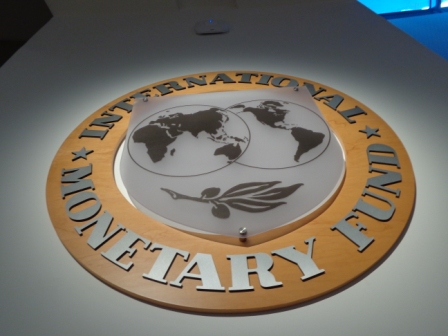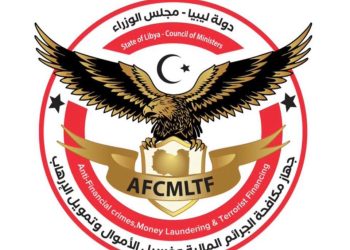In its Concluding Statement on its 2024 Mission on Article IV consultations with released today, the IMF said Libya’s short- and medium-term economic outlook is dominated by the dynamics of hydrocarbon production.
The consultations discuss Libya’s economic and financial developments, the macroeconomic outlook, and the country’s policy and reform priorities.
The statement said Libya urgently needs a clear economic vision for the future and the IMF will continue to help the authorities by providing capacity development support in several areas.
The announced central bank reunification has led to welcome improvements in banking supervision and monetary policy coordination and is helping move the reform agenda forward.
The authorities should address the underlying pressures on the exchange rate and avoid the procyclical spending bias. Strengthening Libya’s fiscal framework would enhance macroeconomic resilience.
Several shocks
The statement said that while several shocks have hit Libya, such as tropical storm Daniel striking eastern Libya in September 2023, the impact of the conflict in Gaza and the Red Sea shipping disruptions, they have had only a small impact on economic growth, since Libya’s GDP is mainly based on energy exports.
It reported that real GDP in 2023 is estimated to have expanded by 10 percent, largely owing to a rebound from the oil production stoppages of 2022.
The year 2023 saw a fiscal expansion
The report said that owing to a fall in hydrocarbon prices, government revenues declined, despite the concurrent boost to oil production. Fiscal expenditures nevertheless surged, driven by an increase in the wage bill and higher-than-expected energy subsidies (the latter despite the lower oil prices). Reflecting this expansion, money supply has grown at its fastest pace since the fall of the Ghaddafi regime.
The authorities have been trying to reduce the use of foreign exchange
The report added that in January 2024, responding to pressure on foreign reserves, the Central Bank of Libya (CBL) tightened the restrictions on the issuance of letters of credit and lowered the limits on individuals’ foreign exchange purchases, resulting in the widening gap between the parallel and the official exchange rates. In early 2024, a temporary 27 percent tax on all foreign exchange purchases was announced, together with the relaxation of some of the previously enacted restrictions. The tax is to be applied until end-2024, although the rate could be adjusted earlier if deemed necessary.
Reported inflation stayed low despite depreciation of parallel exchange rate.
With prices of most goods and services either subsidized or administered, the report said reported inflation tends not to track exchange rate movements, even though imports are estimated to constitute around one half of the consumption basket. Moreover, the reported CPI has limited product and geographic coverage. The authorities are already working on expanding coverage and updating the CPI basket, with the new index expected to be available in 2025.
In 2023, the current account surplus is estimated to have declined in line with the fall in oil prices
Libya’s external position, the report said, was broadly in line with fundamentals and desirable policy settings, and the CBL has maintained the reserves at a comfortably high level.
Dynamics of hydrocarbon production dominate
The outlook is dominated by the dynamics of hydrocarbon production, which is projected to reach 1.5 million barrels per day by 2026. GDP is estimated to grow by close to 8 percent in 2024 and continue to expand at lower rates in the outer years. The baseline projection is for declining fiscal and external balances over the coming years in line with a projected decline in global oil prices.
Avoiding the procyclical spending bias and strengthening Libya’s fiscal framework would enhance macroeconomic resilience and reduce volatility in activity and output. Proper budgeting—based on macroeconomic forecasts, fiscal policy objectives and spending priorities—would assist in delinking spending from revenue volatility and improve the management of Libya’s resource wealth. In this regard, improving costing tools and developing a fiscal framework for resource management would be a critical first step. This could be followed by payroll analysis, harmonization of public investment and recurrent budget processes, and production of more complete budget-related reports. Reducing distortions due to high public sector wages and subsidies is vital to improve incentives and resource allocation, fostering capital formation and employment opportunities outside the public sector. Spending should be reprioritized to enhance growth and efficiency and support intergenerational equity, while tax policy should aim to diversify sources of revenue away from oil.
Full reunification of the central bank remains a key objective, and it requires integration of the payment system and unification of the accounting procedures. Limiting monetary financing by the CBL’s Eastern branch would alleviate pressure on the exchange rate and on banking sector liquidity and facilitate policy coordination. Implementing the CBL’s regulatory and governance reforms in the banking sector would strengthen the banks and help to maintain financial stability.
The authorities should address the underlying pressures on the exchange rate. The central bank should preserve the efficient functioning of the foreign exchange market, since the exchange rate is the key macroeconomic anchor, given the lack of other policy instruments. Measures to influence the demand for foreign exchange should be carefully assessed and weighed against the potential impact on the parallel market, inflation, and reserves. In the absence of conventional monetary policy tools, controlling fiscal expenditure would be the preferred response consistent with Libya’s macroeconomic policy framework. Furthermore, the central bank should maintain the integrity of the means of payment, and the recent steps to withdraw the compromised banknotes from circulation are welcome.
Promoting financial stability and strengthening monetary policy requires a comprehensive reform of the banking sector. Staff outlined a roadmap for such a reform in the 2023 Article IV Consultation, with suggestions in various areas: structural (central bank reunification, banks’ disclosure requirements); banking law (establishment of a financial stability committee; development of Islamic finance); governance (fit and proper requirements; separation between CBL’s ownership and supervisory functions); the anti-money laundering and combating financing terrorism (AML/CFT) supervision (address AML/CFT control failures and poor reporting of suspicious activities); and others. The CBL has been proactive in strengthening the prudential framework, including issuing guidance for banks to increase capital, reinforcing the Financial Information Unit, and promoting financial inclusion through enhancements in electronic payments. Further work is needed to ensure compliance and to strengthen the banking sector.
Governance reforms throughout the public sector are necessary
Despite recent progress on some governance indicators, corruption is perceived to be an important concern in Libya, and further reforms for improving governance, the rule of law, anticorruption institutions and the legal framework would be essential. The enhancement of anticorruption strategies and their effective implementation is also needed. In compliance with the 2018 Policy for Enhanced Engagement on Governance, the 2025 Article IV consultation is expected to undertake a comprehensive review of governance, anticorruption, and the rule of law.
The IMF will continue to provide capacity development assistance but better coordination on the authorities’ part is needed
Significant data gaps continue to affect IMF staff’s ability to conduct analysis and provide policy advice. Capacity development is needed for compiling national accounts and an expanded list of financial soundness indicators. Public financial management (PFM) framework reforms, including strengthening macro-fiscal and budget preparation functions, are needed to improve cash management controls and oversight. Given that capacity development is being delivered by multiple providers (the International Finance Institutions, including the International Monetary Fund, and other organizations), there is a need for the authorities to set up a coordinating body to facilitate CD provision and implementation, and to avoid duplication.
Libya’s longer-term economic strategy should aim to diversify away from hydrocarbons and to foster stronger and more inclusive private sector-led growth. Structural reform efforts should focus on strengthening institutions and the rule of law and developing a clear economic vision for the country. A plan is needed to scale up development spending to alleviate growth bottlenecks and reduce fiscal costs associated with high spending on public sector wages and subsidies. The authorities should capitalize on Libya’s comparative advantages (location, landmass, natural resources, and access to energy and labour) to promote development of labour-intensive non-oil economic activity.










